
Simple Ways to Live More Sustainably
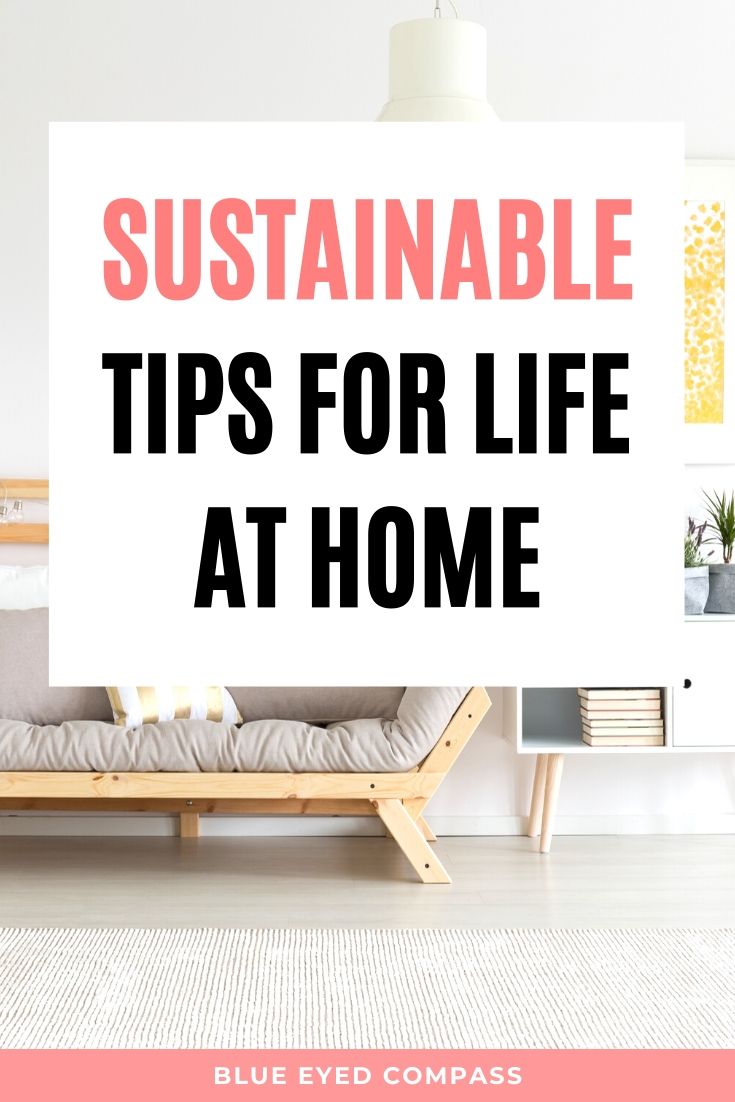
Leading a sustainable lifestyle doesn’t need to only be done while traveling – we can be more environmentally friendly & sustainable while at home. Many travelers know that we should pack our own reusable water bottle & we like to call ourselves ‘sustainable travelers’. That’s a great start, but there are so many more opportunities to protect our environment & our bodies.
With the spread of the coronavirus pandemic of 2020, traveling may very well become more limited, so while we’re spending more time at home, we can utilize these easy to follow tips for creating a sustainable lifestyle at home!
There is an assumption when it comes to sustainable choices that I want to address with two mindset ideas:
- Instead of thinking ‘what do I need to buy to be more sustainable?’, ask yourself ‘what can I reduce or adjust what I’m currently doing?’ Transitioning to a more sustainable lifestyle does not mean you have to overdraft your bank account.
- While some sustainable items will seem expensive, they’re actually an investment. They will last longer and be a much better quality. Don’t let price alone intimidate you from helping you build a healthier lifestyle.
Let’s get started learning how to practice a sustainable lifestyle at home!
What is waste?
Before we can truly embrace sustainable tactics for your home, it’s important to understand why we should be doing so. Humans create a lot of waste. A lot of waste. So much so that we, as a species, now have nowhere else to put it except into the ocean! But what exactly is waste? Is it just trash? Or, excuse the vulgarity, poop?
Waste is an ‘act or instance of using or expending something CARELESSLY, EXTRAVAGANTLY, or to no purpose’. It’s ‘material that is not wanted’ and ‘the unusable remains or byproducts of something’… yes, I took these phrases from the dictionary, because they perfectly & succinctly describe what waste is.
It’s when we are careless that waste builds up, and when we create items or services that leave behind unusable remains.
Did you know that you can waste:
- food
- water
- time and
- energy
And that you can create waste through pollution & garbage.
We are wasteful when we travel, and when we are home we are just as much, if not more wasteful.
So, how can we actively reduce our waste impact & practice sustainable travel tactics while we’re home?
Sustainable Lifestyle Practices for your Home
This in depth list of sustainable lifestyle practices vary from easy to more in depth, and will continue to grow as I too continue to learn & improve my own sustainable lifestyle. I hope you share what you look forward to doing & any additional ideas with everyone in the comments below!
– Voice your concerns –
Sending an email or completing a survey takes only a few minutes of your time. Voice your concerns with the businesses that you wish would do better.
- Did your airline use plastic cups? Did they offer reusable cutlery?
- Was the day trip tour company partnering with small local businesses? Do they help share the local culture?
- Did the restaurant offer plant based meals?
- Is the company inclusive & supportive of all races?
These are questions you can ask yourself & use to evaluate whether a business is practicing sustainability. Many businesses will ask their customers for reviews or to complete a survey about their experience. Take the time to complete them. This is your chance to voice your ideas for better environmentally friendly policies.
For example, I recently emailed Lufthansa applauding their use of metal cutlery on my latest flight, and asked if they were planning to replace plastic cups with a more sustainable option. Your customer feedback is a powerful (and free!) tool.
Learn More : 12 Simplest Sustainable Travel Tips
– Share your POSITIVE experiences with sustainable businesses with friends & families, and leave them reviews –
Leaving a great review for a sustainably focused business helps them be noticed more by their local community, and therefore helps them continue to do their great work. And hopefully it will drown out the lesser quality businesses or motivate them to become more sustainable friendly.
– Use LESS Plastic –
if you haven’t heard, plastic is horrific for the environment. In fact, we’ve created so much plastic waste that we’re ingesting a credit card worth of plastic every week through our water.
How can we use less plastic while at home? Here are a few simple fixes:
- Bring your own reusable bags when you shop – especially when shopping at your local grocery store. You can also purchase reusable cloth produce bags, or no bags at all for your produce. Concerned about your produce touching your cart or the checkout belt? Think about the journey your produce took to get to the store -do you really think they have each item lined with clean plastic, protecting it the entire way? Just wash your produce at home & save the world from another tossed out plastic produce bag and thick grocery bag.
Here are a few different ways you can safely wash your produce with items you most likely already have in your pantry.
- Use silicone bags & glass Pyrex containers for food storage – this will eliminate the need for plastic Ziploc bags, aluminum foil & plastic wrap.
- Buy in bulk or frequent refill stores – more on this below!
– Enjoy more vegetarian meals –
Budget travelers will typically agree that eating a plant based diet tends to be much cheaper while traveling. Which means the sames hold true while you’re at home!
The meat production industry creates one-fifth of all man made greenhouse gases. That’s more than the impact of EVERY one of California’s 26+ million registered cars on the road. The meat industry is a leader in carbon dioxide emissions. From what? Cow farts. Yes, I just wrote cow farts & manure. The number of cows being bred for meat consumption is so large that their excess gas has a one-fifth impact on our environment. One-fifth!!
Now, if you’re a die-hard meat eater & you find yourself rolling your eyes to this information, then aim to support locally raised meat. The supply pollution from locally sourced meats is significantly lower compared to generic grocery store meat due to its proximity to your home.
You don’t have to staunchly label yourself as a vegan, vegetarian or pescatarian, but instead just be more mindful about eating a whole food & nutritious diet.
– Cook at home –
while we’re on the subject of what we eat, you can become a stellar sustainable individual just by cooking your meals at home. Not only will you be saving money from ordering take out or eating out, but your body will LOVE what you put into it because you will know exactly what ingredients you’re ingesting. Plus you end up saving a ton of money from cooking at home as well.
– Make your coffee at home OR bring a reusable mug with you to the cafe –
Limit the number of plastic lined paper cups you consume by brewing your coffee at home. One of the most sustainable ways to enjoy coffee is with a Pour Over Coffee Maker. Similar to cooking at home you will be saving money.
You could also bring a reusable mug with you to your favorite coffee shop for your morning pick-me-up. Just ask your barista to please use your mug for your order.
– Go paperless with your bills –
rather than waiting for the monthly snail mail of bills to enter your mailbox, select a paperless option. You’ll get your bill notifications much quicker & be saving the environment from more paper waste.
– Limit your water use –
As much as I would love to roast in a steamy shower, it’s important to limit the amount of water usage in your household. Our water has to be filtered through a local county service before it enters our plumbing systems. By limiting your water usage, you are lightening the strain on the local systems and allowing the environment to maintain more of its natural water resources.
Simple ways we’ve found to reduce our water usage:
- turn the faucet off when scrubbing your hands with soap
- only run the dishwasher when it is full
- take showers back to back – this limits the amount of time you need to let your shower water heat up, as it’s already warm from the person who showered right before you!
– Adjust your thermostat –
Fresh air is good for the soul, so limit the use of your thermostat when you can and open those windows. If you’re concerned about a hot summer, open your doors & windows in the cool morning and then draw your shades closed in the afternoon to prevent excess heat into your home. And if you hate cold winters, instead of blasting your heat, layer up with fuzzy socks & enjoy warm meals. I’m not suggesting you don’t use your AC and heater, but instead lower or raise the temperature so that it’s manageable rather than drastic.
– Unplug unused devices –
Even if your laptop or lamp is turned off, if it’s plugged into an outlet, it is still pulling electricity to it. The simple act of unplugging unused devices is a great way to be more sustainable at home, and it will save you some money on your electricity bill. *This is a great tip for travelers to do before they leave home. Why use electricity when you aren’t even there?
– Stop supporting fast fashion –
fast fashion plays a major role in why our environment is suffering. You can learn more about what it is and how to embrace a beautifully cultivated slow fashion wardrobe in this post all about Sustainable Fashion.
– Lump errands into one trip starting with the place that is furthest away from your home –
Say you have three errands to run this week. You could run one of those errands individually each day, and start your car at home, drive to your destination and back home again. Or you could leave the house once and complete them in one trip. When you do this start at the furthest location & work your way back home. Doing so will decrease your greenhouse gas emissions from your vehicle.
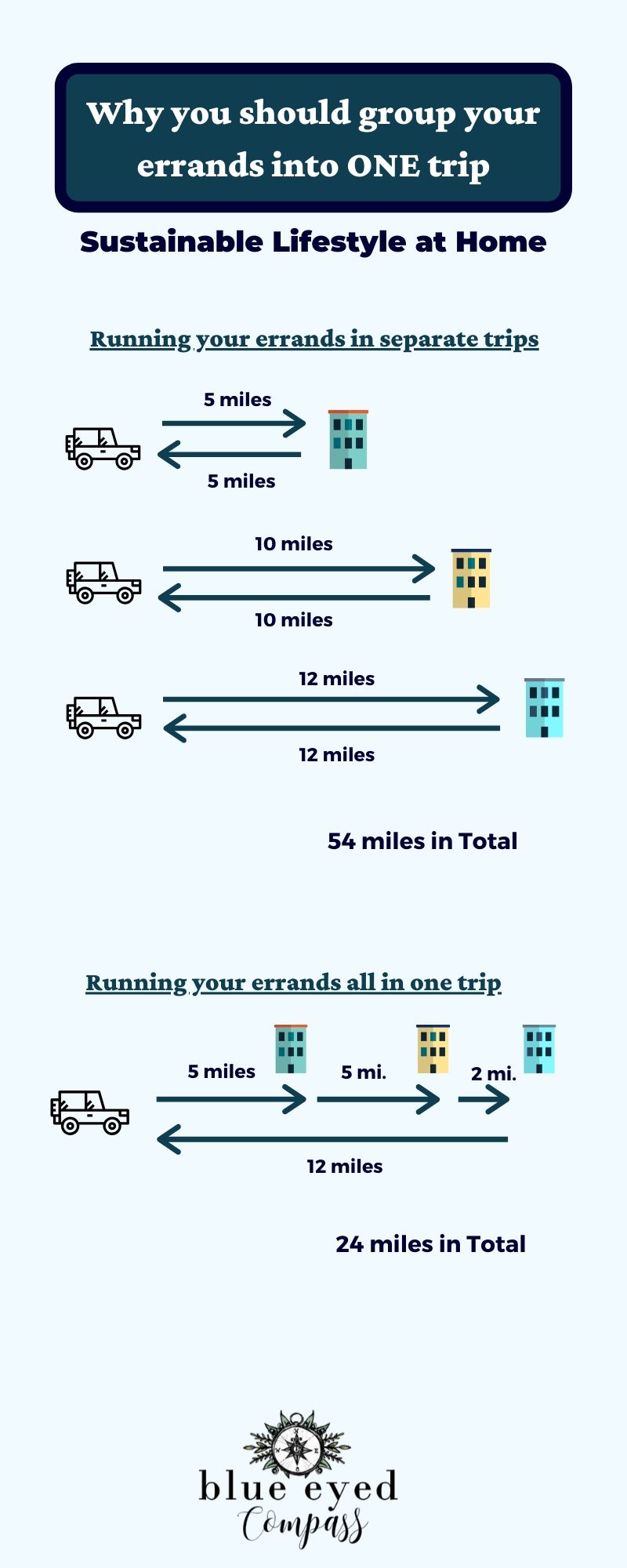

– Research the products that you eat, clean with & put on your skin –
We mentioned how great it is to cook your meals at home, but not all grocery stores items are equal in health or in their environmental impact. The same goes for the products that you use in everyday life. Let’s walk through how you can best tackle the food you eat, what you clean with, and your skincare products:
- EATing sustainably: organic produce does tend to be more expensive, so purchase organic items when you can, and enjoy more whole food products and less doritos (as much as I love the taste of doritos, and other snack items, they are horrible for your body).
You can also start your own vegetable garden at home and create a compost of your current food waste to feed your garden. This will decrease your weekly waste. If you live in an apartment here is an apartment composting guide you can follow.
- CLEANing your home: The products you use to clean your dishes, countertops and floors can all be absorbed into your skin and your pets skin. Scary stuff, since we, as consumers, know so little about the ingredients & chemicals used in those products. Instead purchase from high quality, clean product brands such as Blueland or find your local refill store. They will most likely have environmentally friendly products. I love going to our San Diego local refill store for hand soap, sunscreen & laundry detergent. Speaking of laundry detergent, start using better quality detergents & dryer sheets. Dropps is a great option for detergent, and instead of wasteful dryer sheets use dryer balls (or nothing at all!). Another sustainable laundry tip – line dry what you can to limit the use of dryer time, and only run your washer when it’s completely full.
- Sustainable SKINCARE: The skin is the largest organ on your body and it soaks up molecules like tofu soaks up oil (in case you aren’t aware, tofu is very absorbent). So be sure that the skincare line you are spending your money on is focused on your health, as well as your beauty. One of my absolute favorite brands happens to be a San Diego local business, ClearStem. Their products are quality tested, all natural and contain ZERO acne triggering ingredients.
The point of all of this is to reduce the use & ingestion of toxic products in your home and body. It’s important that you do your research. Not every business that labels itself as ‘green’ or ‘all-natural’ is actually good for you. Businesses have taken advantage of our perception of ‘green’ as clean & healthy. There are almost no strict guidelines to what can be put on a label – this is known as ‘greenwashing’. My suggestion – research who owns the company, read the ingredients and ask them questions.
– Research who is in charge & VOTE –
Find out who your local politicians are supported by. If their donors are companies who don’t care about the environment, then that politician will most likely be unable to support environmentally friendly policies. Over 70% of all emissions come from large corporations, and those large corporations run on a tight ROI budget. It costs them more money to run their business sustainably for the environment, and they won’t want to lose any revenue due to environmental restrictions.
We have to be the ones who demand sustainable business practices & products that are environmentally-conscious. Enough demand will create a supply. Individual action & research can spread a chain reaction on a larger scale if we’re even slightly aware of it. Voting for those who have our communities in mind gives us the ability to use our voices & exercise our rights.
Many of these sustainable practices for your home will cost you no money – in fact they’ll most likely end up saving you money, and potentially save you thousands on healthcare costs – and are essential to facilitating that positive change that we all crave to see in the world.
Pin me for Later!



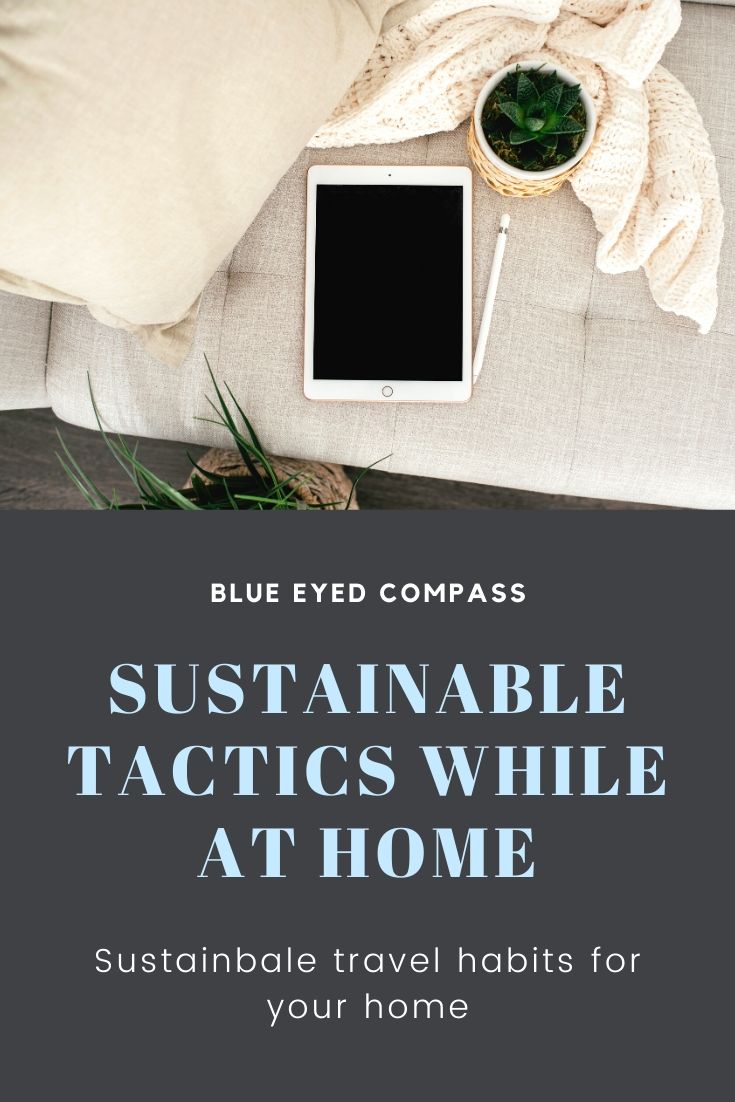

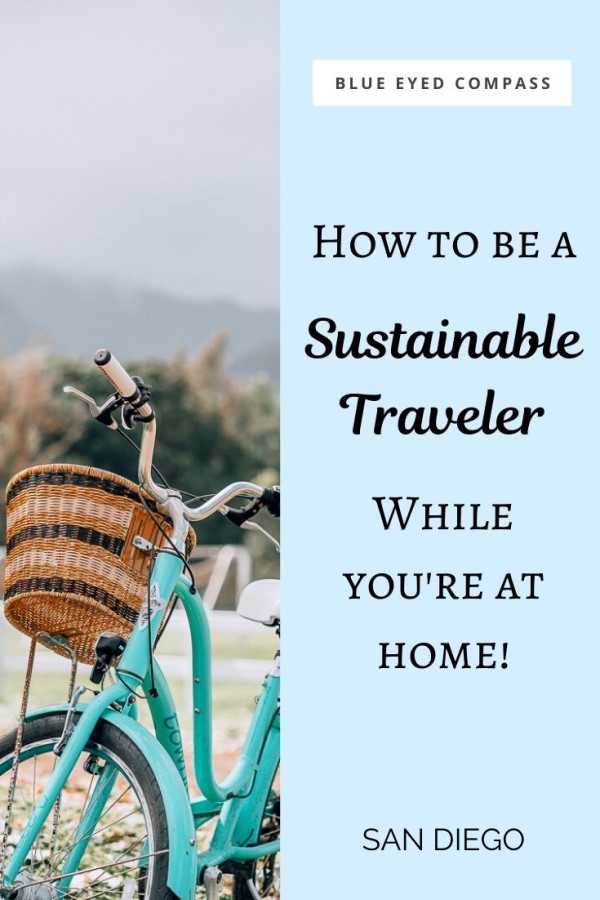

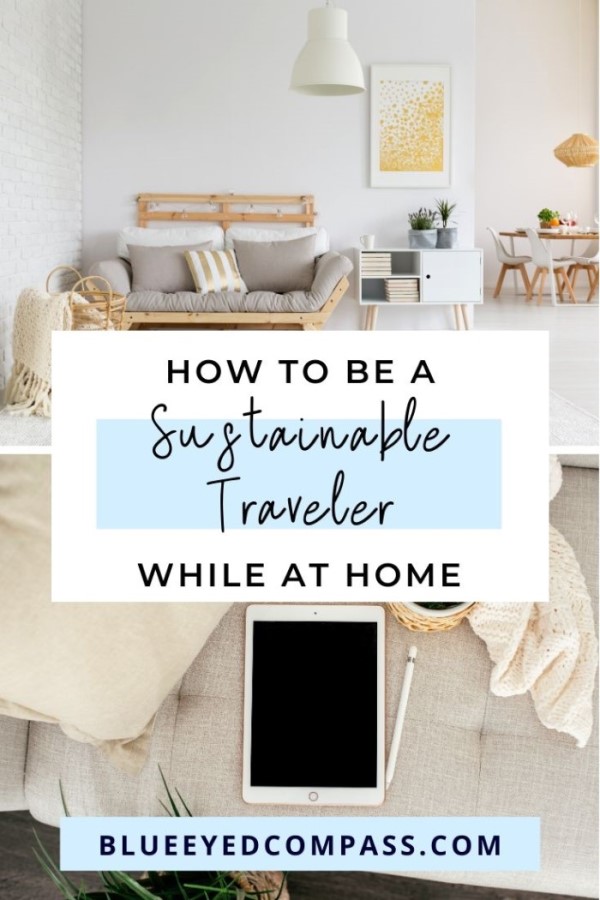



Follow Along




